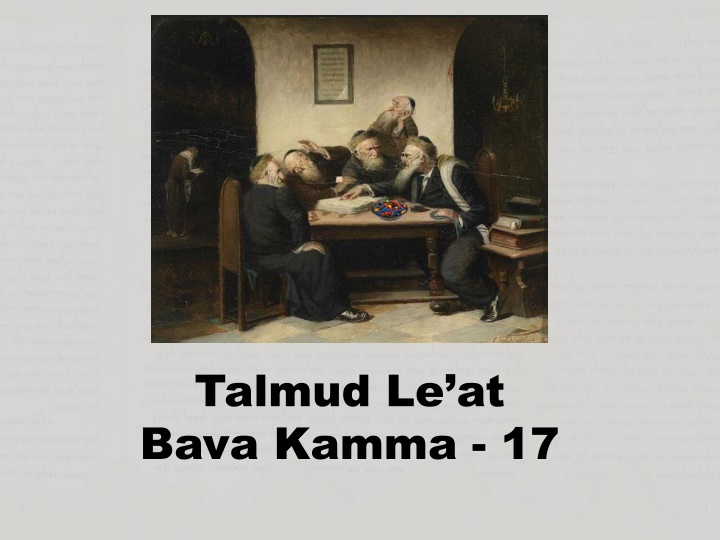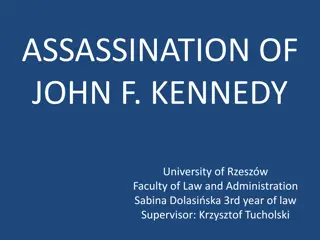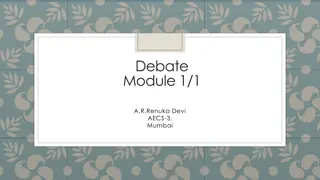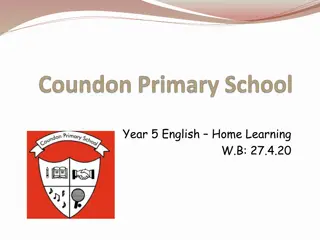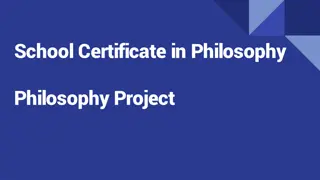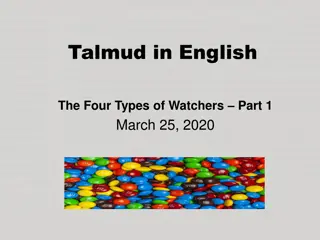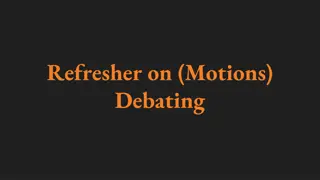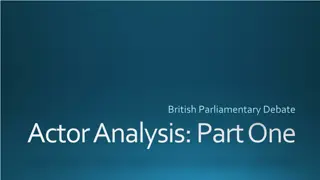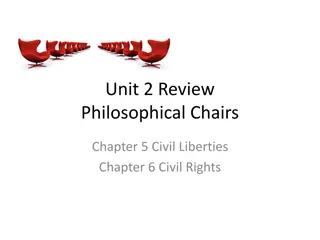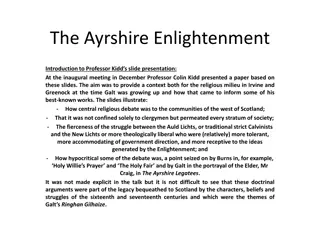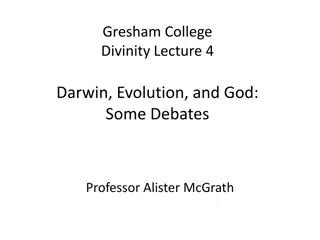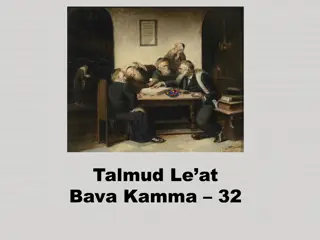Deeper Insights Into Talmudic Debates
A review of Talmudic discussions and debates on topics such as the use of slaves for debts, property ownership, sacrilege, and interactions with non-Jews. Delve into Tannaitic baraita, Mishnah Bava Kamma, and passages from the Talmud Le'at to explore the nuanced legal interpretations and explanations provided by various scholars.
Download Presentation

Please find below an Image/Link to download the presentation.
The content on the website is provided AS IS for your information and personal use only. It may not be sold, licensed, or shared on other websites without obtaining consent from the author.If you encounter any issues during the download, it is possible that the publisher has removed the file from their server.
You are allowed to download the files provided on this website for personal or commercial use, subject to the condition that they are used lawfully. All files are the property of their respective owners.
The content on the website is provided AS IS for your information and personal use only. It may not be sold, licensed, or shared on other websites without obtaining consent from the author.
E N D
Presentation Transcript
Talmud Leat Bava Kamma - 17
Review Resumed the argument over whether slaves can be used for debts Acquisition 3 part Tannaitic baraita involving Slaves Land Movable Goods Me'ilah - Sacrilege 2 Talmud Le'at - 17
Mishnah Bava Kamma 1:2 - c , , , Property that does not have sacrilege, property that belongs to members of the covenant, property that is designated, and any place other than the special domain of the damager and the domain of the damaged and damager. 3 Talmud Le'at - 13
Bava Kamma 13b ? : "! " " , , : " "Property that belongs to other members of the covenant": What does this exclude? If to exclude a gentile, this is taught further on: "An ox of an Israelite that gored an ox of a gentile is exempt"! Taught and returns to explicate 4 Talmud Le'at - 17
Non-Jews in the Talmud Gentiles Latin, gens "people" Goy Nation Ovdei Kochavim u'Mazalot Worshippers of Stars and Constellations Akum - " Nochri - Stranger Notzri Nazarite (Christian) 5 Talmud Le'at - 17
Bava Kamma 13b ? " " : " " " " "Property that is designated": What does this exclude? Rav Judah said: It excludes where one says, "Your ox that did the damage" and the other says, "Your ox that did the damage" 6 Talmud Le'at - 17
Bava Kamma 13b ; " : " " " But this is taught further on: If two pursue one; this one says, "Your ox did the damage," and the other one says, "Your ox did the damage," they are both exempt Taught and returns to explicate 7 Talmud Le'at - 17
Bava Kamma 13b : , , ! ? ? " In a baraita it was taught: It comes to exclude ownerless property But what is the case? If we say that one of our oxen gored an ownerless ox, who is going to sue him? Rather an ownerless ox gored one of our oxen, let him go and take! Where someone else took the ox first 8 Talmud Le'at - 17
Bava Kamma 13b , : " ' " " ' ' : : " " : , , " Ravina said: It excludes an ox which gored and afterwards was consecrated, or an ox which gored and afterwards was made ownerless It was also taught: Moreover R. Judah said: Even if it gored and afterwards was consecrated, or it gored and afterwards made ownerless, he is exempt, as it is said, " had been forewarned with its owner, and it killed a man (Exodus 21:29) - Unless the death and the standing before the court are alike 9 Talmud Le'at - 17
Exodus 21:29 , - , , -- , , , But if the ox was wont to gore in time past, and warning has been given to its owner, and he has not kept it in, and it has killed a man or a woman; the ox shall be stoned, and its owner also shall be put to death. 10 Talmud Le'at - 17
Bava Kamma 13b " " ? ? : But do we not require the verdict? Isn't "The ox shall be stoned" written in reference to the verdict? Rather say: unless death and the standing trial and the verdict is the same 11 Talmud Le'at - 17
Bava Kamma 13b " "? " " : "Except in a place designated for the damager" For he may say to him, "What was your ox doing in my domain?" 12 Talmud Le'at - 17
Bava Kamma 13b " : : " ; "and the domain of the damaged and damager" R. Hisda said in the name of Avimi: in a jointly owned courtyard, there is liability for Tooth and Foot and this is what it says: with the exception of a domain owned by the damager, where he is exempt; a domain of the damager and damaged, when it causes damage, the damager is liable 13 Talmud Le'at - 17
Bava Kamma 13b : : ' , ; But R. Elazar said: He is exempt for the Tooth and Foot and this is what it says: with the exception of a domain owned by the damager or a domain of the damager and damaged, where he is also exempt; when it causes damage, the damager is liable this comes to include the Horn 14 Talmud Le'at - 17
Bava Kamma 13b R. Hisda and this is what it says: with the exception of a domain owned by the damager, where he is exempt; a domain of the damager and damaged, when it causes damage, the damager is liable R. Elazar and this is what it says: with the exception of a domain owned by the damager or a domain of the damager and damaged, where he is also exempt; but when it causes damage, the damager is liable 15 Talmud Le'at - 17
Bava Kamma 13b " " " ? " , This is good for Shmuel, but according to Rav, who said that the mishnah taught "ox", includes all types by ox, "the damager is liable," what does it include? 16 Talmud Le'at - 17
Bava Kamma 13b " . , " " : It includes that which our Rabbis have taught: "Whenever damage has occurred, the damager is liable" - to include an unpaid guardian and a borrower, a paid guardian and a renter, where the animal in their premises did damage Tam pays half-damages and a mu'ad pays full damages. If it broke out at night, or robbers took it by force and it went out and did damage, he is exempt 17 Talmud Le'at - 17
Bava Kamma 13b " " : ? ? , ; , The Master said: "Whenever damage has occurred the damager is liable" - to include an unpaid guardian and a borrower, a paid guardian and a renter, What is the case? If you say the ox of the lender damaged the ox of the borrower, let him say to him: "If my ox had damaged someone else's, you would have to pay; now that my ox has damaged your ox, should I have to pay?" 18 Talmud Le'at - 17
Bava Kamma 13b , ; ? , Rather, if the ox of the borrower damaged the ox of the lender, let him say to him: "If my ox had been damaged by someone else's, you would surely have had to pay me for the full value of the ox; now that the damage resulted from your ox, how can you offer me half damages?" 19 Talmud Le'at - 17
Lender Borrower L B L B 20 Talmud Le'at - 17
Bava Kamma 13b , , ? In fact, the lender's ox damaged the borrower's ox, and what are we dealing with here? Where he took upon himself responsibility for guarding the body but not responsibility for guarding against damage 21 Talmud Le'at - 17
Bava Kamma 14a ? , , , ? ! If so, what about the concluding clause: "If it was broken at night, or if robbers took it by force and it went out and did damage, he is exempt" But if during the day, he is liable! Why? He did not take upon himself responsibility for guarding against damage 22 Talmud Le'at - 17
Bava Kamma 14a , : , This is what it says: if he has taken upon himself responsibility for damages, he is liable. If broken at night, or if robbers took it by force and it went out and did damage, he is exempt 23 Talmud Le'at - 17
Bava Kamma 14a ? , : ? Is this really so? Did R. Yosef not teach: a jointly-owned courtyard or the inn, he is liable for the Tooth and for the Foot Is this a refutation of R. Elazar? 24 Talmud Le'at - 17
Bava Kamma 14a ? ? ' : : R. Elazar would answer you: Do you really think so? Are there not disputing baraitot? For it was taught: Four general rules were stated by R. Shimon b. Elazar with regard to damages: 25 Talmud Le'at - 17
Bava Kamma 14a 1) Any premises owned by the damaged party and not by the damager, he is liable for all 2) For the damager but not for the damaged party, he is exempt for all 26 Talmud Le'at - 17
Bava Kamma 14a ; , , , ; , , , , 3) This and that, such as a jointly-owned courtyard or a valley, he is exempt for Tooth and for Foot; for goring, pushing, biting, falling down, and kicking, a tam pays half-damages and a mu'ad pays full damages; 4) Not this and that, such as a premises not belonging to the two of them, he is liable for Tooth and for Foot, for goring, pushing, biting, falling down, and kicking, a tam pays half-damages and a mu'ad pays full damages. 27 Talmud Le'at - 17
Dueling Baraitot 1) But R. Elazar said: He is exempt for the Tooth and Foot 2) Did R. Yosef not teach: a jointly-owned courtyard or the inn, he is liable for the Tooth and for the Foot 3) This and that, such as a jointly-owned courtyard or a valley, he is exempt for Tooth and for Foot 28 Talmud Le'at - 17
Bava Kamma 14a , , In any case, it taught that in the case of a domain jointly owned by both or a valley, he is exempt for Tooth and Foot. 29 Talmud Le'at - 17
Bava Kamma 14a ! , These two contradict each other! When that was taught, in a courtyard was set aside by this one and that one for both fruits and oxen That of R. Joseph in a courtyard set aside for fruits but not set aside for oxen For with respect to Tooth such is considered the courtyard of the damaged party 30 Talmud Le'at - 17
Bava Kamma 14a , Also precise it teaches here similar to an inn, and there it teaches similar to a valley Learn from this 31 Talmud Le'at - 17
Bava Kamma 14a ? : " " , : " " " R. Zeira raised a difficulty: Since it was set aside for fruits? For we need, "and it eats in another's field" (Exodus 22:4), it does not Abaye said to him: Since it is not set aside for cattle, we can call it "another man's field" 32 Talmud Le'at - 17
Bava Kamma 14a , : ! ; " , : R. Aha of Difti said to Ravina: Let us say that just as the baraitot do not dispute, so too the Amoraim do not dispute! He said to him: Indeed; but if you think that they do dispute, they dispute over the question of R. Zeira and the answer of Abaye 33 Talmud Le'at - 17
